CUEB Hosts 364th Shuangqing Forum of National Nature Science Foundation of China on "Economic Growth Theory and Optimization of Macro Policies"
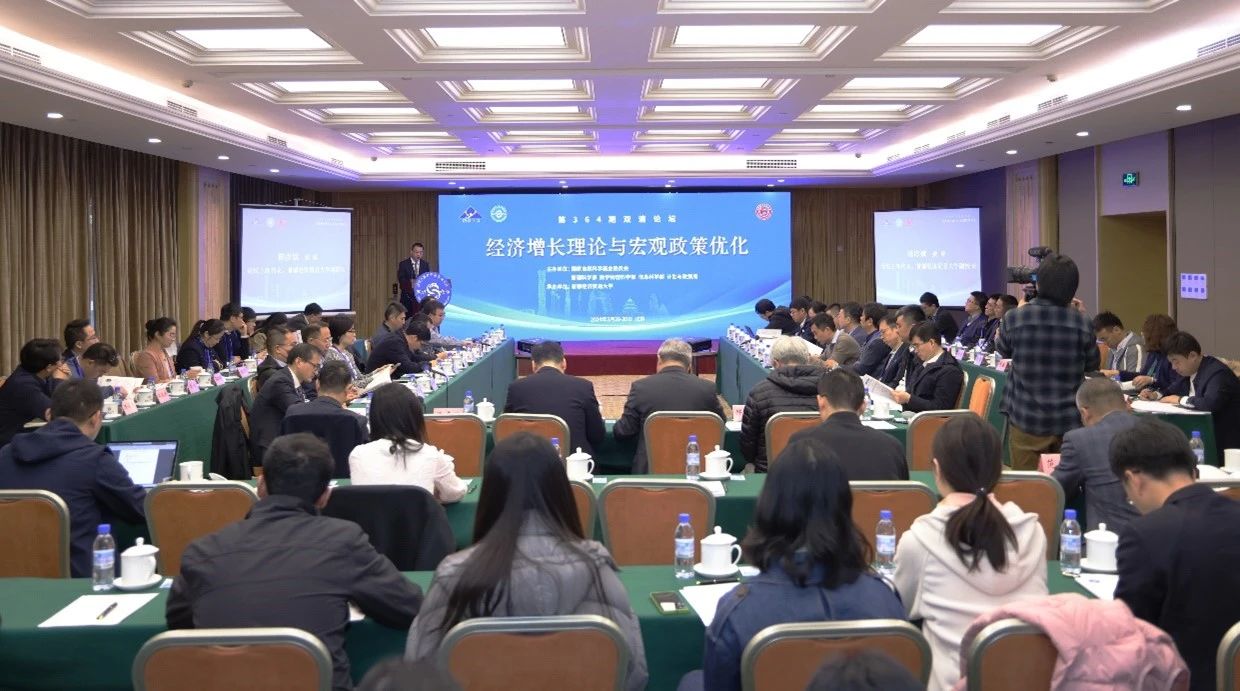
On March 29 and 30, the National Natural Science Foundation of China (NSFC) hosted its 364th Shuangqing Forum (an academic symposium for NSFC to identify priority areas for investment, centering on one topic every year) on “Economic Growth Theory and Optimization of Macro Policies” in Beijing. This year, the forum was hosted by CUEB, jointly organized by the Department of Management Science, the Department of Mathematical and Physical Science, the Information Science Department, and the Bureau of Planning and Policy of NSFC. The event was co-chaired by Professor Chen Yanbin, Member of the Standing Committee of CUEB Party Committee and Vice President, alongside Professor Deng Xiaotie and Professor Wang Pengfei from Peking University.
At the opening ceremony, speeches were given by Academician Jiang Song, Party Member and Deputy Director of NSFC, Wu Weixing, Deputy Party Secretary and President of CUEB, and Forum Chairman Chen Yanbin. Liu Zuoyi, Deputy Director of the Department of Management Science, presided over the ceremony.
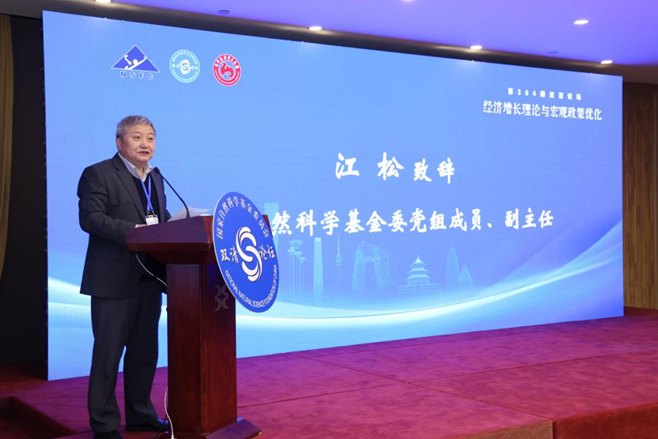
Jiang Song highlighted China’s remarkable economic achievements over the past 40 years of reform and opening up, known globally as the “Chinese Economic Growth Miracle”. Meanwhile, the macro-control system with Chinese characteristics has also achieved remarkable results. Thus, transforming the significant innovations of China’s macro-control into a systematic theory that can be shared, expanded, and measured, not only holds critical importance for China but also offers valuable insights for global application. This effort is aimed at bolstering the international presence of Chinese macroeconomic theoretical advancements. The forum focused on the intersection of macroeconomics and computer science, targeting high-quality economic development, and aimed to identify critical scientific issues and interdisciplinary funding models that demand immediate attention in the pursuit of reshaping economic growth theories and refining macroeconomic policies. In the next 5 to 10 years, we aim to set the direction for strategic funding initiatives. The hope was for experts to engage in open and diverse discussions, bringing to the questions in macroeconomics that are crucial and awaiting solutions. Such discussions are vital for providing scientific support for high-quality economic development.
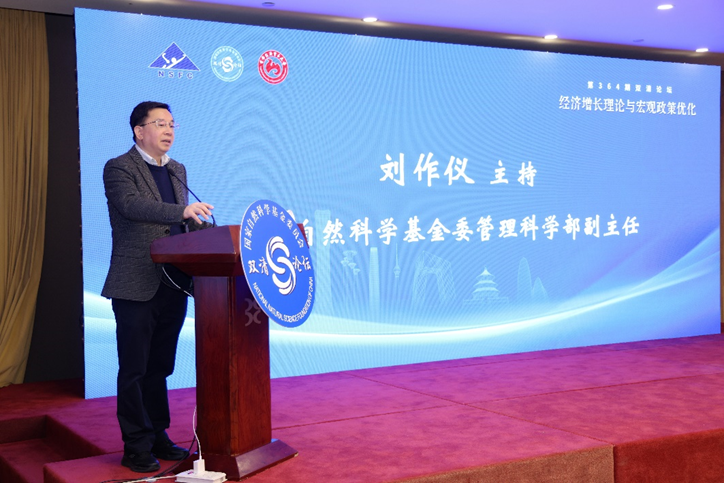
Liu Zuoyi presides over the opening ceremony
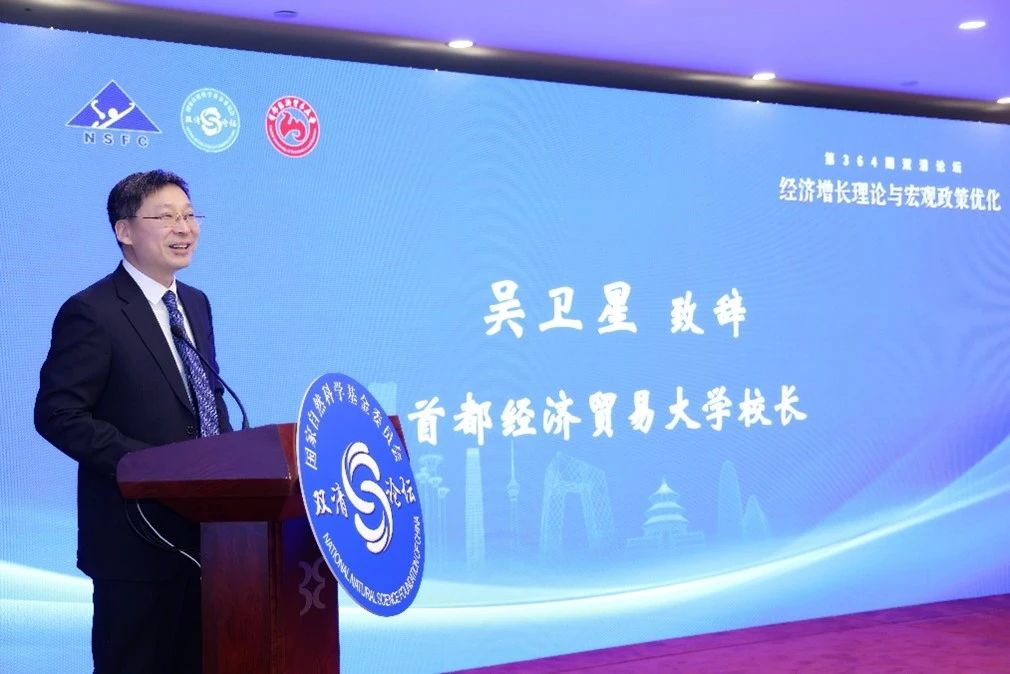
Wu Weixing commented on the necessity to rethink traditional economic growth theories against the backdrop of global economic integration, advocating for adaptable growth models suited for the new era. He highlighted the limitations of relying solely on singular policy tools to navigate the complex and ever-evolving economic landscape. Instead, there’s an imperative to refine policy design continually, integrating a broad spectrum of considerations including the economic structure, industrial distribution, and employment situation. He advocated for a dynamic adjustment of macroeconomic policies, such as fiscal and monetary policies, tailored to the evolving needs of economic development to foster stable growth and preempt risks. Looking ahead, Wu emphasized the strategic coordination and optimization of resources to spearhead organized research initiatives. By leveraging the high-caliber think tank, the objective is to catalyze significant research breakthroughs in economic growth theory and macro policies optimization. Through the synergistic efforts of attending experts, the ambition is to advance the reconstruction of economic growth theories and the optimization of macroeconomic policy design, collectively contributing wisdom and strength toward enduring and robust economic development.
Chen Yanbin mentioned that the purpose of the forum is to explore and identify cutting-edge scientific questions and directions for research within the domains of economic growth and macroeconomic policies. Highlighting China’s shift from a high-speed to a medium-high-speed growth phase, he underscored the need for China to move beyond the traditional theories of growth convergence to meet its ambitious goals for 2035, including achieving the basic realization of socialist modernization and Chinese modernization. Chen pointed out the necessity for China, more so than for developed economies, to accelerate the redevelopment of economic growth theories. He attributed the success of China’s macro-control system to its enhanced ability for countercyclical adjustment and crisis management. This success was fundamentally due to the system’s integration of stability, growth, and structural policies, facilitating both short-term economic stability and sustained high-quality growth. Chen also noted that the “Synthetization of Three Macro Policies” requires further exploration and strengthening for optimal integration. Transforming China’s macro-control practices into a theory that is shared, expanded, and measured, is significant for China and even the global community. This theoretical framework would not only solidify support for China’s economic development and ensure its steady growth but also share Chinese insights and models for global economic governance, thus elevating the stature of Chinese macroeconomic theories and the larger body of Chinese economic knowledge internationally. Chen encouraged experts to follow three guiding principles: to align with the digital economy era, to draw from China’s practical experiences, and to commit to quantitative research. This approach, he suggested, would lead to the identification of pioneering scientific questions, thereby directing the evolution of macroeconomic theory and advancing the discipline.
The forum had five splendid reports given by Liu Shangxi, Dean of the Chinese Academy of Fiscal Sciences, Professor Liu Yuanchun, President of Shanghai University of Finance and Economics, Deng Xiaotie, Professor from Peking University, Song Zheng, Professor from The Chinese University of Hong Kong, and Wang Pengfei, Professor from Peking University. Subsequently, 37 influential experts and scholars across China had in-depth discussions on topics of the reconstruction of economic growth theory, macroeconomic modeling, macro-computational economics theory, and macro-policy optimization design in three meeting rooms. Besides, this forum specially set up the Macroeconomic Youth Forum.
Wang Pengfei presided over the closing ceremony. During the ceremony, the experts had an active discussion on the scientific issues. They put forward scientific research issues on China’s economic growth theory and macro-policy optimization in the future. Liu Zuoyi, and Wu Gang, Director of the Third Division of the Department of Management Science, both gave positive appraisal to the consensus achieved in this forum.
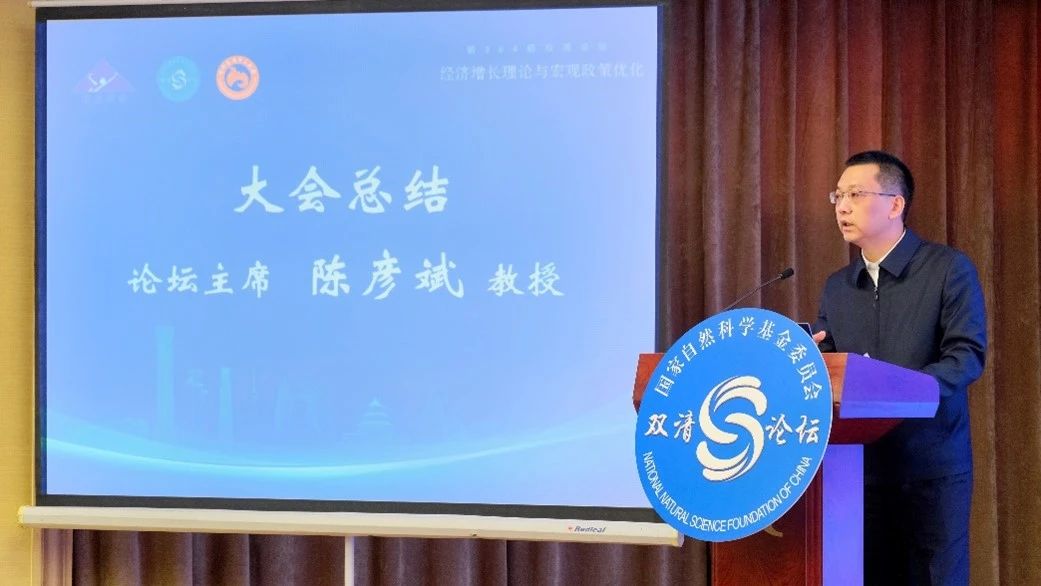
In the closing remark, Chen Yanbin said that macroeconomic theory was of great value and becoming more and more significant. As traditional macroeconomic theories are being challenged and China’s research on macroeconomic theories is embracing new opportunities, it is necessary to refine the theories and develop China’s knowledge system. These efforts could better solve the new macroeconomic problems in the process of Chinese modernization. The key scientific issues to be studied in the economic growth theory and macro-policy optimization include the research on the factors change, institution change, and reconstruction of economic growth theory, the research on the macro-policy theories and policy optimization design, the research on the quantitative assessment of macro-policy, the research on the new paradigm of macroeconomics from the perspective of finance, and computational economics theory and application oriented to macro-economics. It is anticipated that the experts and scholars will offer insightful commentary and generate more high-quality outcomes.
Present at the forum were more than 40 experts and scholars from colleges, universities, and research institutes across China, as well as relevant staff of the NSFC.
